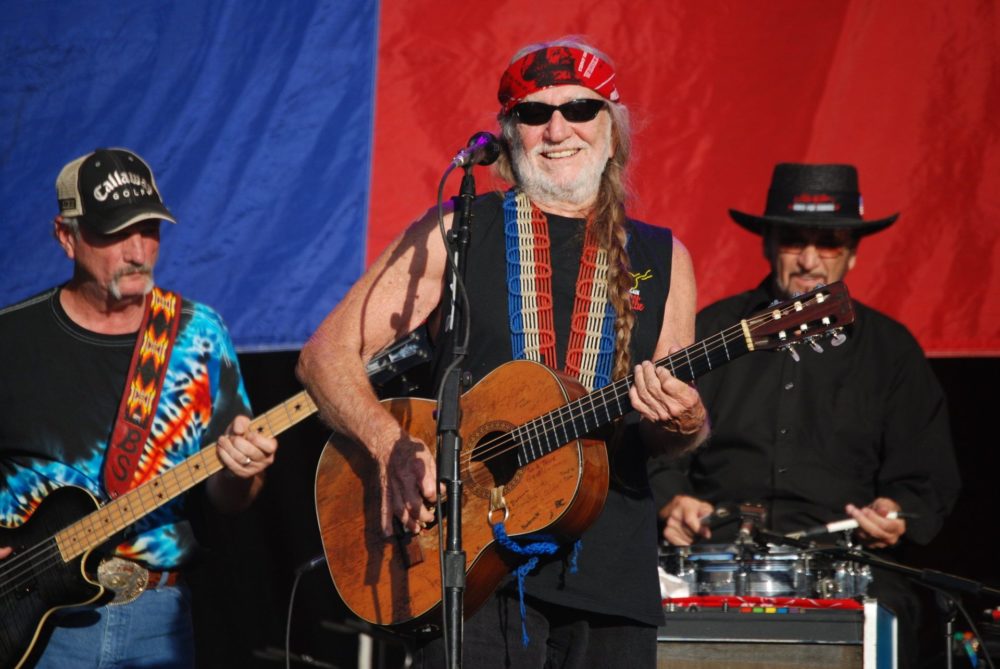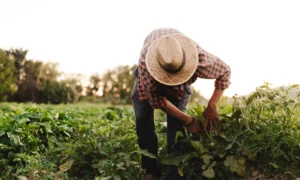Willie Nelson may have warned mammas to not let their babies grow up to be cowboys, but regenerative ranchers are certainly welcome at the country star’s Luck Ranch in East Texas.
“The Nelsons came to us and said they had been watching us for four years to make sure that we were doing what we said we are doing,” Orion Weldon, co-founder or regenerative agriculture farm business and educational outlet TerraPurezza, told AFN.
“Their vision is to follow our lead and let us use their entire acreage to prove that these methods can regenerate bare rock and juniper trees.”
TerraPurezza is partnering with Luck Ranch to implement regenerative land, water, and resource management techniques to transform the 500-acre spread.
Based in Spicewood, Texas, the startup describes itself as a model for industrial regenerative agriculture and a multi-campus business operating on 150 acres (not including Luck Ranch.) Launched in 2015, founders Tina and Orion Weldon met while studying at Rutgers University and quickly learned they shared a similar dream about getting into regenerative farming. The first generation farmers learned everything they know through YouTube and by attending one of grazing aficionado Greg Judy’s workshops. They started with 50 egg-laying hens and expanded from there.
Nelson is no (redheaded) stranger to supporting US farmers and championing environmental health. He founded the annual Farm Aid music benefit concert — a farmer suicide hotline — and has championed local food production. Today, Luck Ranch is the venue for the annual Luck Reunion music festival and is also home to more than 70 rescued horses. Now, he’s on that road again by opening up his ranch to the possibility of regenerative agriculture.
Regenerative agriculture is getting more mainstream. But how scalable is it? Read more here
Luck Ranch and TerraPurezza began implementing regenerative agricultural practices on the property in June 2020, with the goal of having a fully functional operation by late 2021. By then, interested parties will be able to purchase TerraPurezza products and sign up for training.
The startup has developed a method of regeneration that it calls a ‘pasture reset.’ This involves jumpstarting the nutrient cycling process that leads to healthy soil, abundant forage, and higher stocking rates. It starts with feeding pigs food waste from Whole Foods and upcycled materials in the land. The following year, TerraPurezza sows nurse plants and seeds and follows that with chickens, sheep, and eventually cattle to maintain the grasslands.
“It recognizes that a lot of these lands don’t quite have the nutrient cycling needed to get perennial bunch grasses started again. We focus on restoring a lot of the native vegetation, especially the bunch grasses, bluestem, switchgrass, yellow indiangrass, and eastern gamma grass,” Orion explains.
The startup’s also focused on showing that regenerative agriculture can be financially viable for farmers, Tina adds. It offers hands-on workshops for other farmers, such as a course called ‘The Whole Bird’ that takes participants from receiving day-old chicks in the mail to the point of retail sale.
The long term goal for the partnership is to generate data and prove out regenerative ag’s promise. Eventually, TerraPurezza and Luck Ranch want to conduct workshops both on the ranch and in classrooms to help other producers learn the same techniques. With a background in nutrition, Tina is also excited about the opportunity to demonstrate the ability of regenerative ag to improve the nutrient density of food.
As for the regen-ag skeptics who claim there isn’t enough data to back it up, it’s not scalable, or that it’s too labor-intensive, TerraPurezza doesn’t have any blue eyes crying in the rain.
“What is important to remember is that everyone eats and that food is not a political issue. Whatever side of the spectrum your politics are on, everyone cares about land and family,” Tina says.
“It will be an uncomfortable change and that cannot be denied. But with data and financial sustainability people will see how this is a change in the right direction.”





